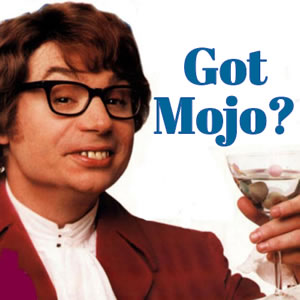When I attended the Pinot Noir Festival in McMinnville, Oregon I was amazed by the quality and quantity of the wine and food.
On assignment for Seattle Magazine, I was overwhelmed by the sheer numbers of bottles to taste.
Even for a wine geek like me, it proved a daunting, though appealing task.
As I wove from booth to booth, sniffing and tasting, I wondered how I could translate such an amazing experience into the confines of a magazine story. How could I generate suspense from such an experience of sensory overload?
As I pondered the task, I decided to organize the story as a quest narrative. I would write about my quest to find the perfect glass of Pinot Noir.
A quest narrative is one of the oldest and surest ways of telling a story. The Odyssey is essentially a quest narrative, with Odysseus’ journey back to his wife and son serving as the basis for the quest. Since then there have been thousands of quest narratives written, including King Arthur and the Knights of the Roundtable, detective stories, Moby Dick, and many others.
The form of a quest narrative is simple. Basically, the author describes his or her desire to do something, see something, experience something, discover something. In describing the object of the quest, whether a grail, or castle or insight or pot of gold, it’s helpful to “sell” the quest, emphasizing why it’s important either to the writer or the reader.
Since the writer is the reader’s surrogate, describing why you want to go to Mexico City is often enough, especially if you can make it seem an especially appealing destination. Some quests are so compelling they don’t need to be sold: the quest to find the Green River Killer or a cure for cancer but remember to be very specific.
The description of the goal for the quest encourages a sense of seeking, questioning and curiosity, propelling readers forward into the narrative. It gives a structure and suspense to a piece that might otherwise be flat and static.
This is a very adaptable form, appropriate to all kinds of subjects, whether personal essays, travel pieces, investigative journalism, memoir and even literary criticism. You can write a quest narrative about seeking to find the perfect peach, or the perfect glass of Pinot Noir wine, or about coming to terms with your parents. The quest narrative can be used effectively in many different contexts.
The form fits very well with the emphasis on curiosity as the basis of fine nonfiction writing. The description of the quest immediately poses a quest in the reader’s mind: will the author or narrator achieve the quest?
Quest narratives can be written in a number of points of view. First person is probably most common in nonfiction, but third person can also be used, as in the description of a scientist searching for a cure for the common cold.
Writing a Quest Narrative in Travel Stories
- Describe the object of the quest and why it’s important. You don’t have to start the story with this statement, but it should come near the beginning, explaining why you’ve arrived in New Guinea, for example, and what you’re looking for there.
- Set out on the quest. What do you bring? How do you prepare?
- Dramatis personae – Who will accompany you on the quest? Who is the person(s) who will help you complete it? Attempt to thwart it?
- Describe the journey and the difficulties of achieving it, remembering to use scenes to highlight the conflict and drama.
- Describe whether you complete the quest or not.
- What did you learn from it? Even if you don’t complete the quest, tell readers what you learned about the experience. How did it change you?
At the Pinot Noir festival, I learned about the subtleties of the wine, the many varied styles, the qualities of the vineyards, and most importantly, that perfect can be approached, but not achieved…a perfect excuse to return!
~Nick
Nicholas O’Connell, M.F.A, Ph.D., is the author of The Storms of Denali (University of Alaska Press, 2012), On Sacred Ground: The Spirit of Place in Pacific Northwest Literature (University of Washington Press, 2003), At the Field’s End: Interviews with 22 Pacific Northwest Writers (University of Washington Press Press, 1998), Contemporary Ecofiction (Charles Scribner’s, 1996) and Beyond Risk: Conversations with Climbers (Mountaineers, 1993). He has contributed to Newsweek, Gourmet, Saveur, Outside, GO, National Geographic Adventure, Condé Nast Traveler, Food & Wine, The New York Times, The Wall Street Journal, Sierra, The Wine Spectator, Commonweal, Image and many other places. He is the publisher/editor of The Writer’s Workshop Review and the founder of the online and Seattle-based writing program, www.thewritersworkshop.net.
You can connect with Nick socially at: Facebook: The Writer’s Workshop, Twitter: @nickboconnell, Instagram: the.writers.workshop, or learn more about his classes at https://www.thewritersworkshop.net/classes/travel-writing-classes/
Have you used a quest narrative in your travel stories? Share your experience!






Excellent article, Nick! Having heard your presentations on Quest Narratives at my master class, I heartily endorse this technique.
Thanks, Roy! It’s a great technique, especially for travel stories. I enjoyed teaching it at your master class!